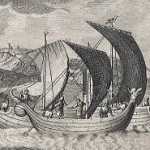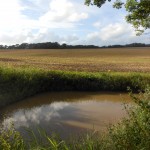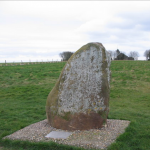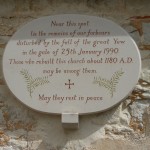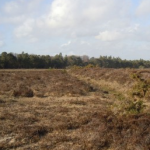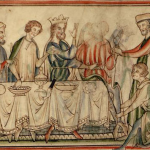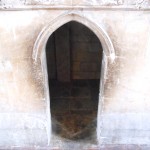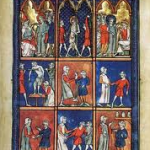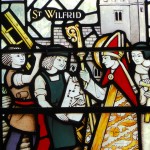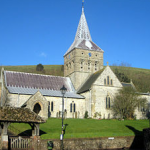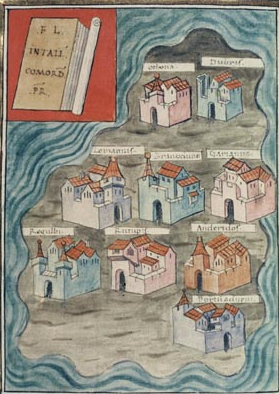Anglo Saxon Period
King Alfred’s Navy
King Alfred left many enduring marks on the county of Hampshire and England. One of his legacies is that of a navy. He designed ships to out do the Danish ships that threatened the southern coast of England.
Read MoreKing Sigebert – The Usurper
Sigebert ruled for one year, as King of Wessex, before losing his position on account of ‘wrong doings’. The importance to Hampshire history of this event is that its record in the Anglo Saxon Chronicle is the first time Hampshire is recorded as a separate entity.
Read MoreVikings Move Against Wessex
Alfred held out against the Viking invasion and showed great skills in organizing his militia, so that when the opportunity to crush the Danish attack, he did so, decisively and coherently at the Battle of Edington
Read MoreKing Edward the Confessor grants Hides at Micheldever to New Minster 900
example of the King granting via Royal Charter land to the Church at Micheldever in the 10th Century with link to the original Old English
Read MoreThe Great Yew of Selborne
Great yews proliferate in the churchyards of Hampshire, one such example could be found at Selborne until it was brought crashing down in a storm in 1990
Read MoreThe ‘Bloody Heath’ and Cerdic
Charford in Hampshire is thought to have been the scene of a bloody battle that resulted in Cerdic and his son Cynric becoming the first kings of the Kingdom of Wessex.
Read MoreEarl Godwin of Wessex
Earl Godwine of Wessex was one of the most powerful men in England before the Norman Conquest, the father of 5 Earls, father to the Queen of England and father-in-law to the King. Father to King Harold II. Quite an achievement for a man who died before he was sixty years old
Read MoreShrine of St Swithun
The shrine of St Swithun was one of the major pilgrimage sites in Medieval England
Read MoreThe Shaftsbury Bowl
The Shaftsbury Bowl, the only complete piece of late Saxon glass in England, can be found in Winchester Cathedral museum
Read MoreSaint Swithun
St Swithun was created a saint 108 years after his death. His shrine became one of the most important places of pilgrimage in England but who was this man whom we remember because of the association between his Saints day, 15th July and the Summer weather?
Read MoreCynegils King of Wessex AD 611
King Cynegils met with the Italian missionary Birinus and converted to Christianity. He brought a weakened and warring Wessex out of obscurity.
Read MoreSaxon Sundials
Possibly the best preserved Saxon Tide Dial in England, the Corhampton dial shows the eight ‘tides’ of the day
Read MoreMalaria in Anglo Saxon Hampshire
Malaria was endemic in Southern Anglo Saxon England and brought misery and death to those living in the extensive marshlands. Bald’s leech book and other writings allude to this ‘spring’ or ‘yellow’ fever.
Read MoreSt Wilfred in Hampshire
St Wilfred came to Hampshire to convert the heathen tribes of the Meonwara to Christianity
Read MoreEast Meon and the Bishops of Winchester
The history of East Meon is closely connected with the Bishops of Winchester, whose influence in this ancient manor date back to pre- Norman times.
Read MoreEarly Saxon Hampshire
The early Saxons in Wessex shunned the Roman towns and religion preferring to settle with their own customs and pagan acts of worship. As Christianity re-emerged, the force of Royalty and Church, with Winchester as their seat, made its slow spread across Hampshire inevitable.
Read MoreSaint Wilfrid in Warnford
The parish church of Warnford sits in woodland rather as it might have done when it was founded in AD 682, nestling by the River Meon
Read More
